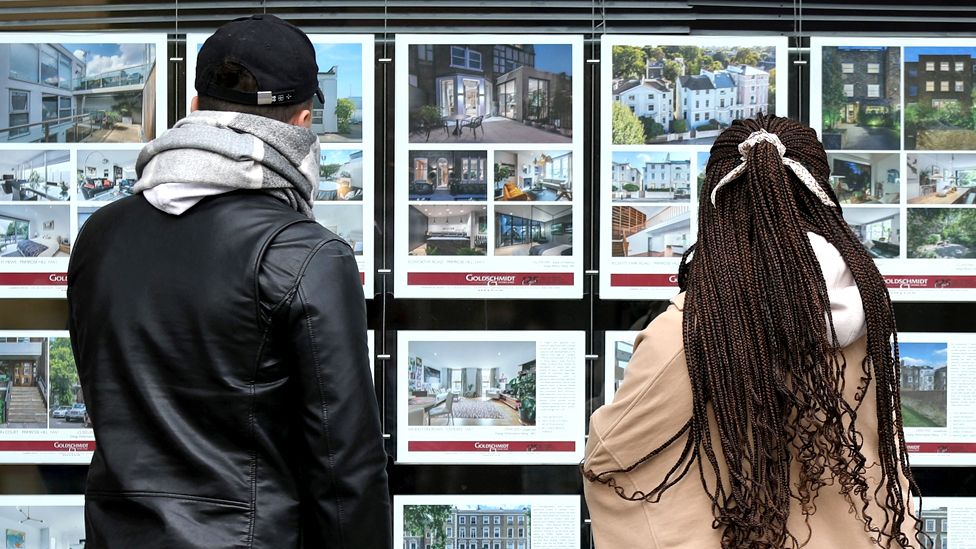1 minute ago
Comments
House prices edged up 0.2% last month amid “encouraging signs” that mortgage rates are starting to come down, the Nationwide has said.
The building society said financial markets estimated interest rates had peaked and would start to come down, easing affordability pressures.
But its chief economist warned it would be unrealistic to expect a big drop in borrowing costs in the near future.
Interest rates set by the Bank of England are at a 15-year high of 5.25%.
The Bank has increased its base rate in an attempt to slow down inflation, which is the rate at which consumer prices rise, and ease the cost of living.
But these higher interest rates have pushed up mortgage rates, making it more expensive for people to afford to buy homes.
House prices have now seen a monthly rise for three months in a row, according to the Nationwide, taking the average price of a UK home to £258,557.
However, the lender also says that property prices are 2% lower than at the same point last year.
The building society’s data is based on its own mortgage lending, so the figures do not include those who purchase homes with cash or buy-to-let deals. According to the latest official data, cash buyers account for more than a third of housing sales.
The average house price remains about £40,000 higher than at the height of Covid when demand in the market led to prices soaring, as people working from home sought more space and took advantage of a stamp duty holiday.
Robert Gardner, Nationwide’s chief economist, said that the housing market was “holding up a little better than expected”.
“There are some encouraging signs that mortgage rates have started to come down, which is going to ease affordability pressures,” he said, adding that borrowing costs had “really been the brake on the market” in recent times.
He told the BBC’s Today programme that financial markets thought interest rates had now peaked and would come down in the years ahead, which would in turn pull down longer-term rates that underpin mortgages.
“But because affordability is stretched I think it’s unrealistic to think that’s going to change significantly. Nobody is expecting a dramatic decline in mortgage rates,” he added.
Mr Gardner said the jobs market would prevent a significant fall in house prices, but admitted it was going to take time for incomes to outpace property price growth rates and affordability to improve.
The average two-year fixed mortgage rate was 6.04% on Friday, while the average five-year deal is 5.65%, according to financial information service Moneyfacts.
Figures from the Bank of England released this week revealed the number of mortgages approved for home buyers picked up in October to 47,400, from an eight-month low of 43,300 recorded in September.
‘Future is brighter’
Gabriella Dickens, a senior economist at Pantheon Macroeconomics, said the month-on-month rise in Nationwide’s figures would likely “reverse in the very near term”.
“A material recovery in house prices still looks a few months away yet,” she said, but added: “The outlook for next year, however, is brighter.”
While the markets have bet that interest rates have peaked, the Bank of England has repeatedly warned against suggestions that rates will be cut anytime soon.
Inflation fell to 4.6% in the year to October, but remains more than double the Bank’s 2% target.
The Bank has twice decided to hold interest rates at 5.25%, but its governor Andrew Bailey has warned rates will remain higher for longer.
What happens if I miss a mortgage payment?
A shortfall equivalent to two or more months’ repayments means you are officially in arrears
You must contact your lender as soon as you realise you are going to struggle to make repayments – the earlier the better
Your lender must make reasonable attempts to reach an agreement with you
What happens if I can’t afford to pay my mortgage?
Related Topics
2 days ago
9 November
